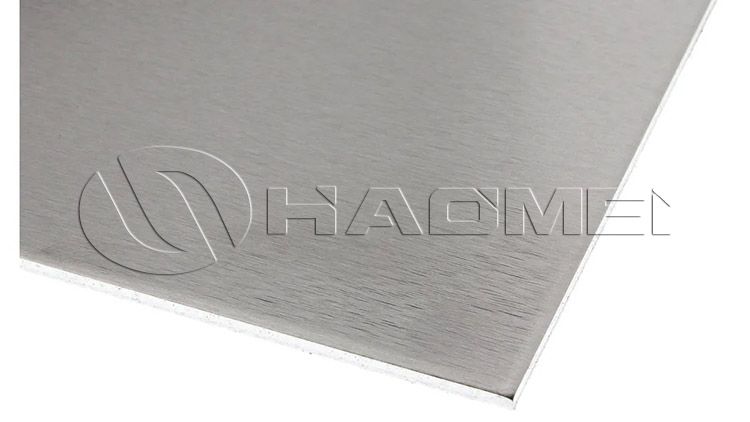
Address: No.14 Waihuan Road, CBD, Zhengzhou, China
Tel: +86-15978414719
Fax: +86-371-65621393
Mail: sale@alumhm.com
Time:2025-05-16
2024 thick aluminum plate belongs to aluminum-copper-magnesium hard aluminum alloy, which has remarkable high strength characteristics. When the temperature is higher than 125℃, its strength even exceeds that of 7075 alloy. This advantage is particularly critical in some application scenarios where the material strength is strictly required and there may be certain temperature changes.
For example, in the manufacture of some parts of aircraft engines, the material needs to maintain stable structural strength under high temperature environment, and 2024 aluminum plate can do it well. Its tensile strength can reach about 470MPa, and its 0.2% yield strength is 325MPa. It can withstand large external forces without deformation or damage.

The forming performance of 2024 thick aluminum plate is excellent in hot state, annealing and newly quenched state. This means that during the processing, it can be easily molded into various complex shapes to meet the design requirements of different products. Whether it is through forging, stamping or machining, it can be carried out smoothly.
At the same time, its heat treatment strengthening effect is remarkable, and its mechanical properties can be further improved through appropriate heat treatment process. However, it should be noted that its heat treatment process has strict requirements and various parameters must be accurately controlled to ensure the stability of product quality.
The alloy can be used for working parts below 150℃ and has certain heat resistance. This feature makes it widely used in some industrial environments with temperature requirements. For example, some structural parts around the automobile engine, when the engine generates heat, the 2024 thick aluminum plate can maintain its own performance stability and ensure the normal operation of the parts.
Although 2024 thick aluminum plate is prone to cracks during welding, good welding results can still be achieved by using special processes, such as selecting suitable welding materials, optimizing welding parameters, and using advanced welding technology. At the same time, it can also be connected by riveting, providing a variety of options for product assembly.
7075 aluminum plate belongs to the Al-Zn-Mg-Cu series super-hard aluminum alloy. Its strength performance is extremely outstanding, with a tensile strength of 524-525MPa, a yield strength of 455-503MPa, and a hardness of 150HB, which is far higher than ordinary mild steel.
This ultra-high strength and hardness enables it to maintain a stable structure when subjected to huge external forces, and it is not easy to deform or damage. In the manufacture of some heavy machinery and industrial equipment that require extremely high material strength, this advantage of 7075 aluminum plate is fully utilized.
The strength of 7075 aluminium alloy can be further improved by proper heat treatment, such as T6 and T651 state treatment. Zinc (Zn) and magnesium (Mg) are its main alloying elements, which form a strengthening phase MgZn₂ in the alloy, which can significantly improve the strength of the alloy.
At the same time, the addition of elements such as copper (Cu) and chromium (Cr) not only optimizes the corrosion resistance of the alloy, but also improves its hardenability. In addition, the use of double-stage aging treatment (such as T73) can effectively improve the alloy's resistance to stress corrosion cracking. However, it should be noted that excessive zinc and magnesium content may reduce the corrosion resistance of the alloy to a certain extent, so the ratio of alloying elements needs to be strictly controlled in actual production.
After solution treatment, 7075 thick aluminum plate has good plasticity, which makes it perform well in rolling, forging and machining, and can be easily processed into various required shapes and sizes. Moreover, its fine grain structure further improves the processing performance of drilling, thread rolling, etc., while enhancing the wear resistance of tools and reducing processing costs. However, the welding performance of 7075 thick aluminum plate is relatively poor, and aluminum cladding or other special protection measures are required during the welding process to prevent the occurrence of stress corrosion.
Although the ordinary corrosion resistance of 7075 thick aluminum plate is not very outstanding, its oxidation resistance and corrosion resistance can be significantly improved through surface treatment such as anodizing. At the same time, strictly controlling the content of impurity elements (such as Fe and Si) during the production process can avoid the negative impact of these impurities on the plasticity and corrosion resistance of the alloy.